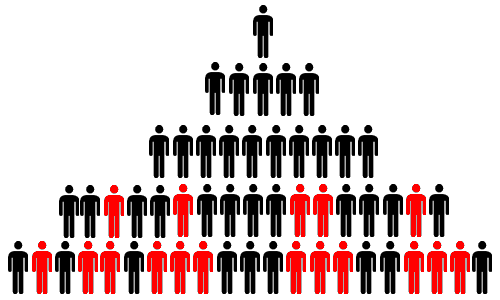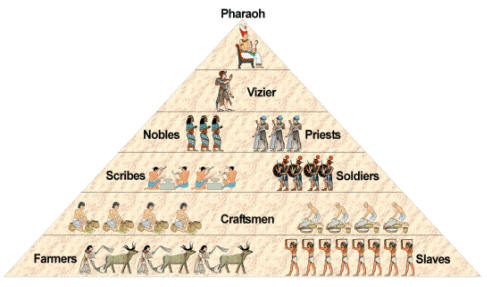Since the Agricultural Revolution around 8000 BC, human society has been aggressively consolidating. Consolidation, framed as a human socioeconomic dynamic, gives rise to both large governments and large corporations, and the speed of the phenomenon largely depends on cultural and economic considerations. Furthermore, it is readily apparent to the conscientious historian that consolidation occurs continuously and, most importantly, accelerates in the presence of high speed communication and transportation technology.
The nature of socioeconomic consolidation is such that if the anarcho-capitalists’ dream state were created, a dominant corporation or organization would eventually assume the role of government, except in unstable situations (Somalia comes to mind). It is naive to think that maintaining a conceptually anti-government position will result in any lasting benefit to individualism in the face of the almighty Corporation, and such positions are the reason I have never been able to take hardcore libertarianism seriously. The fact that I’ve never met a radical “anti-statist” libertarian with self-consistent views probably contributes to my view of such arguments.
If all governments were significantly downsized or eliminated, then private sector entities would eventually consolidate enough power to simply act as a replacement. It’s how the United States was founded, actually; most of the Continental Congress was composed of Plantation owners who consolidated their power into an organization which they formally incorporated (through treaty recognition as well as popular assent) as a federal republic. Plantations being, of course, the large economic power structure of their day, which, in the absence of any strong government influence, managed to keep the African slave trade operating for 50 years after every other Western nation had banned it.
When we further considering the existence of the government-market complex known as the Revolving Door, it becomes even clearer that that anti-government overgeneralizations have serious holes. Corporate influence from KBR/Halliburton, Chevron-Texaco, BP, and Shell Corp all essentially made the decision to enter Iraq using former employees in the PNAC crowd like Richard Cheney. In other words, the effective push for war was carried out by members of the corporate market but mediated by the government. It’s not a conspiracy- there’s surprisingly little organizationally centralized influence on the decision-making process. Instead, an emergent phenomenon caused government-market assets to all move in one direction, similar to how a disorganized flock of birds makes an emergent decision on which direction to fly. The phenomenon is essentially based on the group dynamic which results from the mixing of similar individual priorities. The powerful result is the leaderless unity of business and political-class alpha males.

Authority emerges naturally, the state being no more artificial than the idea of an economic organization
A tempting aspect of human nature is the tendency to want to “scapegoat” a single, centralized entity- it makes assessing blame easier to contemplate. But very rarely can one simply make a throwaway assertion that person/government X is directly responsible for terrible atrocity Y. Most of the time, government serves as a structure which mediates market/popular sentiment, not the other way around. An understanding of both dynamic systems and game theory would greatly aid in understanding who/what to blame- and it’s typically not the government, but instead the socioeconomic system which underlies the government. What about IRS agents, policemen, and presidential cabinet members? In other words, “The State”? They’re all citizens too, and their attitudes reflect prevailing sociocultural ideas i.e. ideas about government legitimacy, economic value philosophies based on how they grew up (typically either egalitarian or rational egoist), views on strict hierarchy-based executive management, etc.
In the end, it is fairly clear that radical libertarians are attacking a symptom instead of the core problem. The problem is not the concept of government, except insofar as governments allow individuals to consolidate. Neither is the economy. One might as well condemn human society in general- after all, it is easily arguable that Nazi Germany was founded upon and enabled by the support of mob behavior. Government is just an incorporated ruling mob, a title given to a group of alpha males who would have already been largely dominant without the formal title. Attacking just the government or just the economy only amounts to an attack on a line in the sand.


Well done Jacob. A thought provoking and well-written piece. Some great analogies. I’ve never really thought past what a society would be like or evolve into post a tea-party rise to power. Too scary I guess. 😉